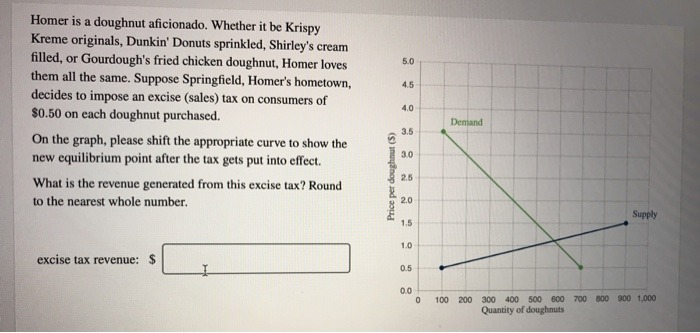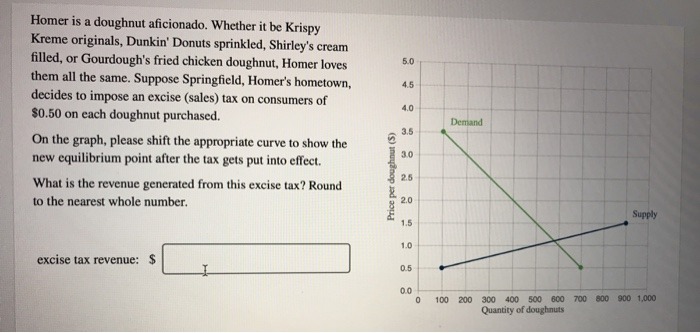Question
CASE STUDY CASE STUDY OVERVIEW Your Employer - FedEx Office You are an account representative with FedEx Office. Your job is to secure relationships with


CASE STUDY
CASE STUDY OVERVIEW Your Employer - FedEx Office You are an account representative with FedEx Office. Your job is to secure relationships with client organizations. Your company melds the parcel moving capabilities of FedEx with printing and data capabilities. Your customers are businesses that need to distribute information to their clients or internal users (e.g., training information, product information, manuals). Unlike main line UPS or FedEx, your employer does not move parcels or freight. Instead, your company helps clients disseminate data to users. In most cases, the data and information disseminated are non-routine (i.e. specific to a certain product, project, or program). An example would be copying, packaging, and shipping training materials and operating manuals to sixty-four hospitals and other facilities owned by Trinity Health group. FedEx Office can print, store, disseminate, package, and otherwise prepare documented materials. Its facilities are located in all U.S. cities with populations in excess of 20,000. The firm ships to any location that can be reached by road. Data can be transferred between any of the 2,150 FedEx Office locations. All locations feature printing, binding, cd, DVD or flash drive burning and other data packaging capabilities. All locations are served by FedEx pickup and delivery. All locations offer a range of delivery options (next day, same day, two business days) very similar to those offered by UPS. FedEx Office can ship across the world. In some nations, agents of FedEx Office (other firms) engage in delivery. FedEx Office facilities are located only in the United States (all fifty states) and across Canada. Your Prospect - Global Training Associates Global Training Associates contacted you by telephone. Global Training Associates is a global training services company that provides an array of packaged training programs to businesses across the United States and in 50 other countries. The company headquarters is in Chicago, IL. It has sub-offices in Dallas, TX and Burbank, CA. Global Training Associates has been in business since 2005. Alex Barber and Jordan Johnson started the company as co-founders. Barber focused on developing "Voice of the Customer" program that has enabled Global Training Associates to provide tailored solutions and services to a wide variety of industries including finance, pharmaceuticals, manufacturing, logistics, retail and energy. Barber is a professional IT resources trainer and holds several national standards certifications in the IT area. Barber earned an MBA from Rice University. In 2006, Barber convinced four fellow IT trainers to form a co-operative. The trainers began training IT managers in the technology area. Over the years, Barber and the partners built relationships with trainers from other disciplines (e.g., LMS, Oracle, SAP, QuickBooks and other areas where business often job out training. Word of mouth and positive experience allowed Barber and the partners to establish an extended network of 350 contractor trainers across the U.S. and Canada. Global Training Associates offers training solutions for more than 22 specific applications. 5 Situational and Context-based Information You have a video conference call with Alex Barber. It lasts for about forty minutes. During the visit, Barber shares information with you and responds to several questions you ask. The following are notes and observations you log during the visit. Clients contact Global Training Associates via the internet or telephone. Based on client needs, Global Training Associates devises a training plan and generates a bid. If the bid is accepted, Global Training Associates notifies a trainer or training team and schedules the session. Then, the Global Training Associates staff confirms the printed materials specifications and any online requirements. (Global Training Associates has learned over time that companies want to provide employees with both electronic and hard copies of all training materials.) The step is materials preparation including printing, collating and shipping. Occasionally, the client generates the materials. Next, the training site is established and trainees are registered, contacted and sent preparation instructions. Finally, training execution takes place on the designated site. Global Training Associates has 32 full-time employees. Fifteen (15) full-time staff work at the Chicago office. Ten (10) full-time staff work at the Dallas office and seven (7) full-time staff work at the Burbank office. At each office, training materials are prepared from documents proprietary to Global Training Associates. Preparation usually involves customization (e.g., inserting the client's logo, date, and producing any mandatory materials such as document numbers or certificates). Global Training Associates produces the materials in the quantities specified, prepares and labels flash drives or other ancillaries, and packages and labels the shipment according to the delivery instructions. The Global Training Associates full-time staff includes a mix of male/female employees and range in age from 22 to 55. The full-time staff primarily works forty hours per week. All of the full-time staff are capable of running duplication equipment, handling document management tasks, and carrying out other office tasks. One employee at each location, the site manager, handles scheduling and billing of the training seminars. Barber and the original partners select and arrange compensation for the contractors who carry out the training. Global Training Associates materials ship to training locations via all the major package carriers USPS, UPS, FedEx, DHL, and others as needed. The training location or hotel holds the materials and the contract trainer (i.e. not a full-time employee) picks them up. Status of Global Training Associates 2019 Global Training Associates' revenues have fluctuated over the past few years. Historically, Global Training Associates carried out more than 3,700 seminars. Each location dispatched approximately 25 seminars per week over a 50-week training year (fiscal year). Base price for any seminar (net of materials) is $4500. Base price covers a three-day seminar (including trainer travel time). Base price covers training for five trainees net of materials with an additional $500 for each additional trainee. In 2010, the average seminar serviced 15 trainees. Global Training Associates has an excellent reputation as a provider of training for human resources, Salesforce and Microsoft Dynamics, SAP, QuickBooks and PeopleSoft. Barber knows that the core of 225 contract trainers, who conduct slightly over sixty percent of the classes offered each year, are the key to Global Training Associates' success. The core trainers average 15 three-day sessions per year. Contract trainers are nationally recognized experts in their fields. Most trainers once worked for large corporations (e.g., Oracle, AT&T and Microsoft) and some trainers hold advanced degrees. All trainers 6 hold specific certifications that make the courses acceptable to certification bodies. In 2019, Global Training Associates ran 3,200 sessions with an average billing of $12,000 per session for a gross revenue of $38.4 million. The declining revenue in 2019 has prompted Global Training Associates to change pricing. Barber explained the Global Training Associates had cancellations between 2018 and 2019 and conceded that several long-time clients had cancelled training because of delays. One client indicated that his trainer was unprepared. "The guy used a white board for the first two days of training. We paid for professional training. I had several trainees complain that they could not follow the material and had to take copious notes by hand." Barber elaborated that in the situation the trainer arrived at his hotel on Monday expecting that the training materials would be there. Because of delays in processing at one of the offices, the training materials could not be shipped until late the previous Friday. The training materials arrived Wednesday afternoon?two days into the training. Barber further explained that three of the staff in the office involved were ill due to a flu outbreak ?causing a backup in processing. So, the materials were shipped out ASAP to the hotel rather than the training site?a restaurant chain. Not only did Global Training Associates lose the restaurant chain as a client--the trainer involved, who was one of the core, went to another training company. "That fellow took about $500,000 annual revenue with him," Barber conceded. Barber observed that, although Global Training Associates can schedule sessions, it was getting more difficult to prepare materials. Most of the clients - restaurant chains, banks, insurance companies, and certain types of manufacturing companies, were small to mid-size. Therefore, they want Global Training Associates to prepare the training materials rather than having to print, bind, and package the materials themselves. Sometimes the larger companies (clients) choose to prepare the materials themselves and then processing disasters occurred. PowerPoint slides were missing or out of order. Training binders were incomplete or not available. Production of training materials occurred at the last minute which led to misspelled words and format errors. In all cases, trainees assumed it was Global Training Associates' fault and the contract trainers became very frustrated handling the complaints and receiving poor evaluations for something that they had no control over. Barber noted that the trainers were responsible for getting the materials onto the training site. That protocol had been in place since the inception of Global Training Associates in 2005. Barber conceded that several of the core trainers were frustrated with having to secure the materials and haul them to the site. One fellow noted that a competing firm shipped direct to the site and texted or called its trainers regarding arrival time and location of materials. Barber conceded that 'something needs to be done soon or we will be out of business within 6-7 years." When asked why Global Training Associates did not ship direct to the training site, Barber sighed and explained that most of the restaurant chains, banks, and manufacturing companies that the trainers deal with have large, extensive facilities. In one case, a shipment delivery to a manufacturing office, the receptionist set the shipment with boxes of equipment manuals and mail that had come into the office. The trainer arrived at the corporate conference room, the designated training site. It took fifteen telephone calls to the carrier, the human resource department, and the central manufacturing office to locate the training materials. "That is why I hold the trainers accountable for shipping materials." 7 When asked if the materials are customized to the client, Barber proudly stated, "You bet. That is a strength of our programs." Barber then noted that in two cases, the wrong organization name ended up on the materials. Oracle materials prepared for the IT staff at Toyota Motor North America office in Plano, TX were mislabeled with materials to be shipped to the IT staff at Kubota Tractor Corporation in Grapevine, Texas. Fortunately, the parties saw the irony in that situation. Barber admitted that, "our office staff is well-trained and compensated but still staff productivity is declining." Sometimes the office staff has family obligations that interrupt attendance at work. However, Barber noted that replacing and training reliable, literate, staff for such positions is expensive. Global Training Associates pays the average staff member $55,000 per year with $20,000 per year in benefits costs. Therefore, staff costs are more than $2.4 million per year. Barber estimates that replacing a staff member will run closer to $65,000 with $25,000 in benefits and other costs of employment. Last year, Barber paid out $150,000 in overtime bonuses to staff attributable to rush jobs and business flux. Goals for Global Training Associates You ask Alex Barber why Global Training Associates seeks to continue in this business in light of labor and support problems. Barber indicates that there is increased demand for outsourced training for technology needs with anticipated growth of 10% (percent) per year for the next five years. "I really need to ramp up our operations and growth," Barber observes. So what other problems exist, aside from delivery and preparation issues? Barber indicates that Training Design Corporation, a company started by a former Global Training Associates contractor, had begun to eke away at Global Training Associates' client base. Taylor Blake, founder of Training Design, had lured away several of Global Training Associates' core trainers with more lucrative compensation and better support. "Oh," you utter. You ask Barber if Global Training Associates can sue Training Design for pirating materials. Barber glares at you. "The trainer is the key asset here. Any expert can develop materials. If I sue, core trainers will leave us like there's a plague."
Part ii.


Step by Step Solution
There are 3 Steps involved in it
Step: 1

Get Instant Access to Expert-Tailored Solutions
See step-by-step solutions with expert insights and AI powered tools for academic success
Step: 2

Step: 3

Ace Your Homework with AI
Get the answers you need in no time with our AI-driven, step-by-step assistance
Get Started


